|
Not many people call me on my cell phone, but Rico did. So when the phone rang while I was driving I wondered if it was him as it clicked to voicemail. It had been a week since we’d last talked. It hadn’t been a great conversation and it had ended when he hung up on me. Rico was a man who lived with pain. Physical, emotional, mental and spiritual pain. He was the quintessential person falling through the cracks of our systems. And falling and falling and falling. Although I love Leonard Cohen’s Anthem, there does not seem to be any light getting into these cracks. Rico carried many labels: ex-con, violent offender, addict, schizophrenic. He was aboriginal, had grown up in foster care, spent years in and out of prison. He could also be charming and endearing and exasperating. Most of all, I think he was incredibly lonely. Labels, I guess, can be helpful. I have friends whose children have various learning challenges and getting the label can help them get support. But labels are very limiting. They have no nuance and tell you nothing about the person. They are also sticky and hard to lose. When Rico called me, his labels had done him in again. He had checked himself into an addiction treatment centre the previous day. He had been on the edge, feeling unsafe, like people were after him. A support worker had helped him get it arranged and I had bought him the Greyhound ticket. But the staff at the centre were sending him back to the city because, they said, of his mental health diagnosis. He needed to be able to check in with his mental health team. He insisted that the doctor knew about and supported his being there and it sounded like it was true when he told me about the conversations his doctor had had with their doctor. I suspect he was right in saying that they didn’t want to deal with someone like him, someone who had the complexity of mental health on top of addiction. Just a reality. They may have felt they did not have the capacity for that. Rico also believed it was because of his record but it was hard to tell what was real and what was a symptom of his illness and what was triangulation. He was angry. And although I don’t blame him I asked him to stop yelling at me and said that the insults he was throwing at the people at the treatment centre were not helping. But, like everybody else, I couldn’t simply fix it. And when, in my exasperation, I said that, he hung up. The missed call, when I checked it at home, showed as private. There was a voice mail message from a Vancouver City Police detective. Nothing against police, but it’s rarely good when they call. He started with the “are you. . .?” and “do you know a. . .?” “Yes.” And, “I understand that you were his pastor?” I had known Rico for years, I explained. We’d met at an outreach ministry and had kept in touch even as I moved into different work. I’d connected with him a lot in the community, supported him through homelessness and hospitalization, visited him in prison and talked to him regularly since he’d been out. “We’re calling you because you were listed as his contact,” he said. “I have some bad news and am seeking information. I’m sorry to say that Mr. G- is deceased.” I always find it odd when people say that. So and so is deceased. I guess it’s supposed to be less harsh than saying he’s dead but it often strikes me as prevaricating. I said nothing. “It was likely an overdose,” he continued. “Possibly a medical event. But nothing was done to him,” he assured me. Nothing was done to him. Trying to give me some level of comfort however small. Which it was. Rico had been afraid of dying violently, of being hurt. He’d told me that. He was often the target of violence and had been beaten up several times. He was also afraid of dying alone. He was afraid of dying alone because, he believed, that unless someone was there praying for him as he passed, intervening with God, that he would not go to heaven. I had told him that I did not believe that to be true. I told him that God was not like that, that God accompanies us and that he, Rico, was a beloved child of God. He always found my theology baffling, or so he said, and to be honest it sometimes sounded hollow even to me in the context of his life. And I feel a deep grief to think that even if he did not die violently, he died believing that he had been abandoned by God and me and the system that tossed him down that crack. Some people might attribute Rico’s death to the current opioid crisis. I don’t. His ensnarement went much longer and deeper than that. His life was a tragedy of layers of colonization that continually tried to contain and confine him. He seemed to get caught and mauled by every stinking dysfunction in our society. We think we have systems in place to help people until every single one seems to have a little sign on it that says, “Oh, well, not for you.” I do not separate myself from that system. There is a labyrinth embedded into the floor of the church. It is a beautiful pattern created out of a series of switchbacks that ultimately lead to the centre. Labyrinths are ancient spiritual practices. People walk them for many reasons: as meditation; for clarity; to shake loose stuck questions. I walked the labyrinth trying to come to terms with Rico’s death. I walked with my guitar and sang and sang until something released and tears poured down my face. Singing became sobbing but I did not stop, just kept strumming the chords, the combination of walking, bare feet on the cool floor and vibration from the guitar a deep prayer that helped me to settle. Often you step into the labyrinth with a question and the act of walking reveals new truths and you come out with new understandings. This was not one of those times. This was a walk of mourning, of lament, a private procession for a man, a beloved child of God, indeed a friend, who bore the brunt of our collective brokenness. I once asked God what was the point of driving Rico around and never being able to help? The response, because he is now in my heart. Grief comes from a deep place. It wells up from the cracked foundations of our lives, seeping sometimes through the layers and the patches we have used to cover our brokenness. Our own brokenness and our collective brokenness, the cracks that we sometimes carry on behalf of the whole. Rico carried our communal cracks for us. With my grief I picked them up and carried them like an offering to the centre.
9 Comments
 I went down to the river today to check how the blackberries are ripening. Last year at this time the berries were large and sweet and plentiful. I went almost daily and picked bucketsful, coming home and filling the freezer. Things were hopeful then. Paul’s surgery had gone well, as good as can be expected, his surgeon had said. Blackberry picking is prayer for me. It’s a communion of sunshine, berries and water. The stuff of life. Today though, green berries hung under smoke-hazed sky as I walked through the river. I don’t know what it is about picking blackberries that takes me into contemplation but it does. Every time. The abundance of green berries mimicked my bereavement, hanging there where a year ago hung sweetness and hope. The water felt cold on my feet. Yet as I gazed at the bushes I realized that there were not only green berries. Ripening had started. And while many berries that had darkened were not yet sweet, I could spot the ripe ones. Something about their sheen and the way they hung set them apart from the others. I started picking, carefully spotting the few and delicately rolling them off with my fingers. It’s almost impossible to completely avoid the brambles even picking from the river and the scarcity of the ripe berries meant moving in close to reach all that I could. I spent some time untangling from thorns. But I was thinking about how those ripe berries were adding up to a small but delightful harvest when I turned to step to the next section. River picking takes some special knowledge, the main one being watch your feet. When you’re standing in water moving over slippery stone, stepping blindly risks falling. And it’s not just getting wet. Falling means losing the bounty of fresh-picked berries. So as I began to move down the bush, I turned to spot my feet in the river. And saw the ducks. 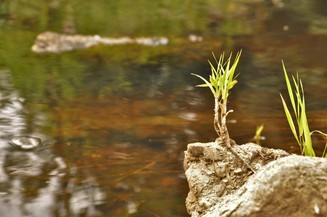 Five brown ducks skimmed through the water right behind me, bobbing and ducking and gliding. I found a dry stone where I could sit and watch their interactions. I felt myself soften. And when a dog and its human came down, scaring away the ducks, I noticed a fan of grass growing out of the crack of a stone poking out of the water. And my attention was caught by leaves floating downstream. After a while I got up and crossed over to the other bank and picked a few of the ripe berries there. From that side I could hear the bumble bees that were visiting the flowers growing on the bank. I found a spot where I could watch them bounce between blossoms. The dog and it’s owner left and quiet settled in. The ducks mosied back. A brilliant blue dragonfly attached itself to a stem of grass. I lay on my belly for a closer look. The ducks found a spot for grooming. Little white feathers fluttered onto the water and drifted with the current. The afternoon ebbed.  Eventually I got up, brushed myself off and waded back to the path. Today’s venture did not yield more than two cups of blackberries and only moderately sweet at that, and yet I came away with the abundance of the river. Maybe, as the summer continues, the berries will ripen to a bountiful harvest and maybe this will be a year of low yield. I’ll keep checking. But I’ve learned once again that God’s gifts are not always the expected or sought after. Abundance comes in different forms. And sometimes it shows up quietly from behind when our attention is elsewhere. If we’re lucky, we’ll notice. Thanks be to God. |
Kimiko KarpoffScattered moments 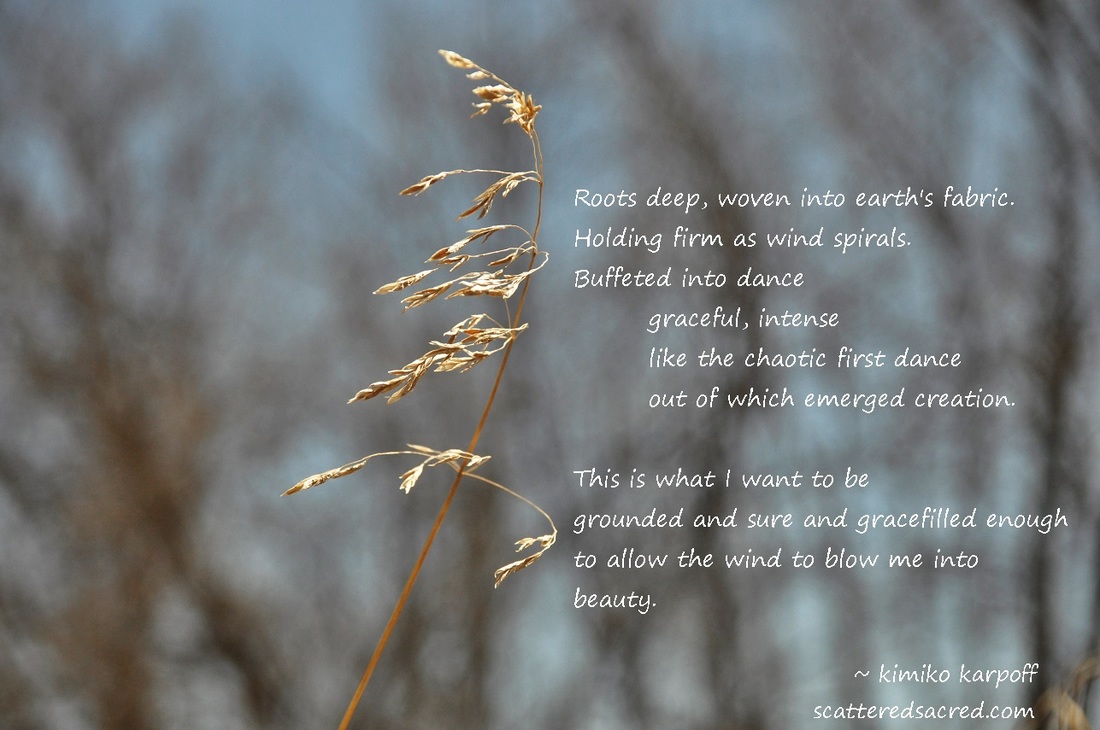
Click here to check out Kimiko's Postables
Paul's page includes photographs, stories from friends and fans, kimiko's blog posts and more.Categories
All
|
Proudly powered by Weebly

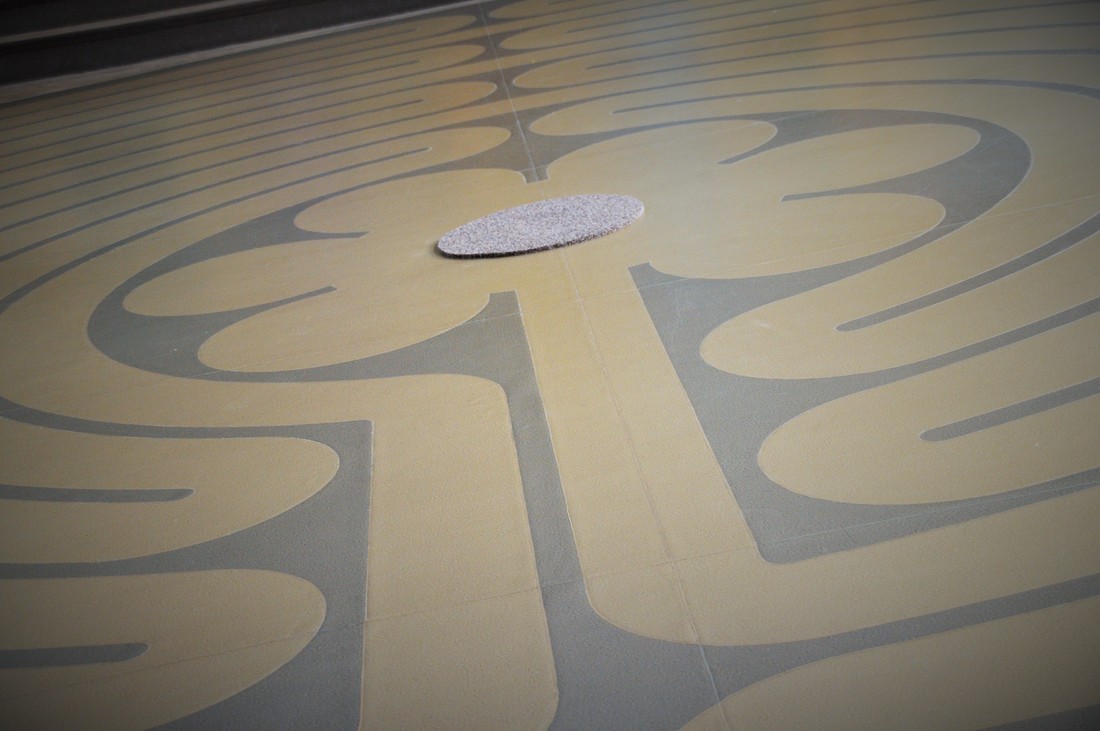


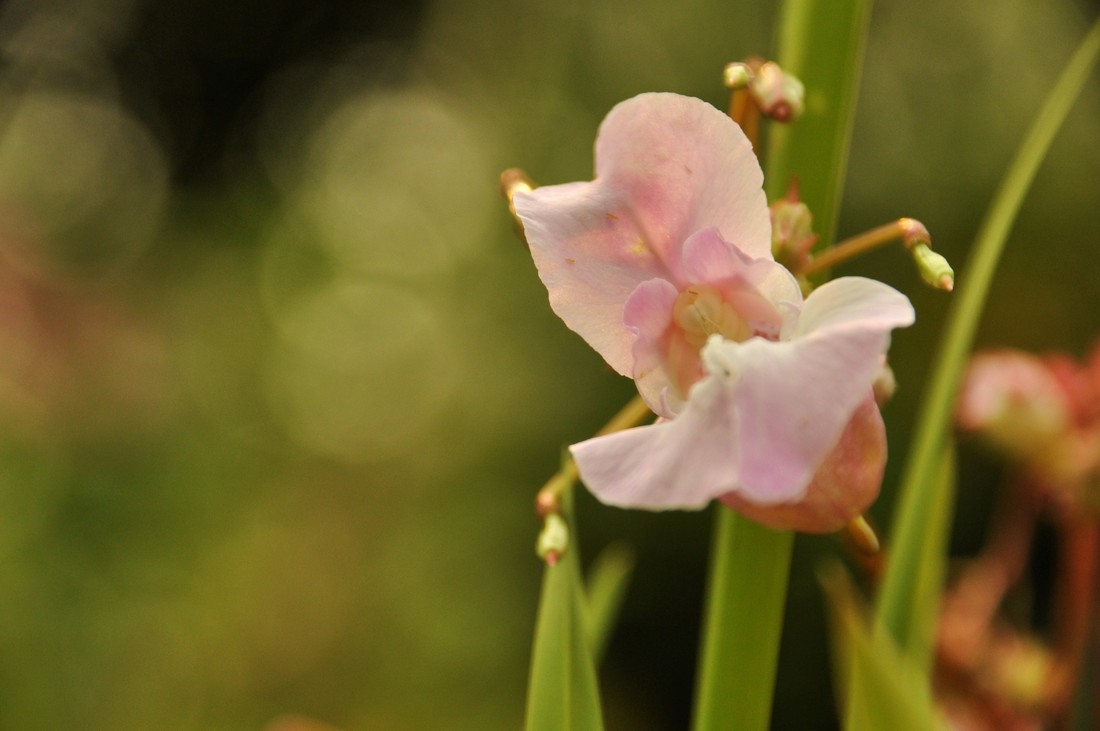
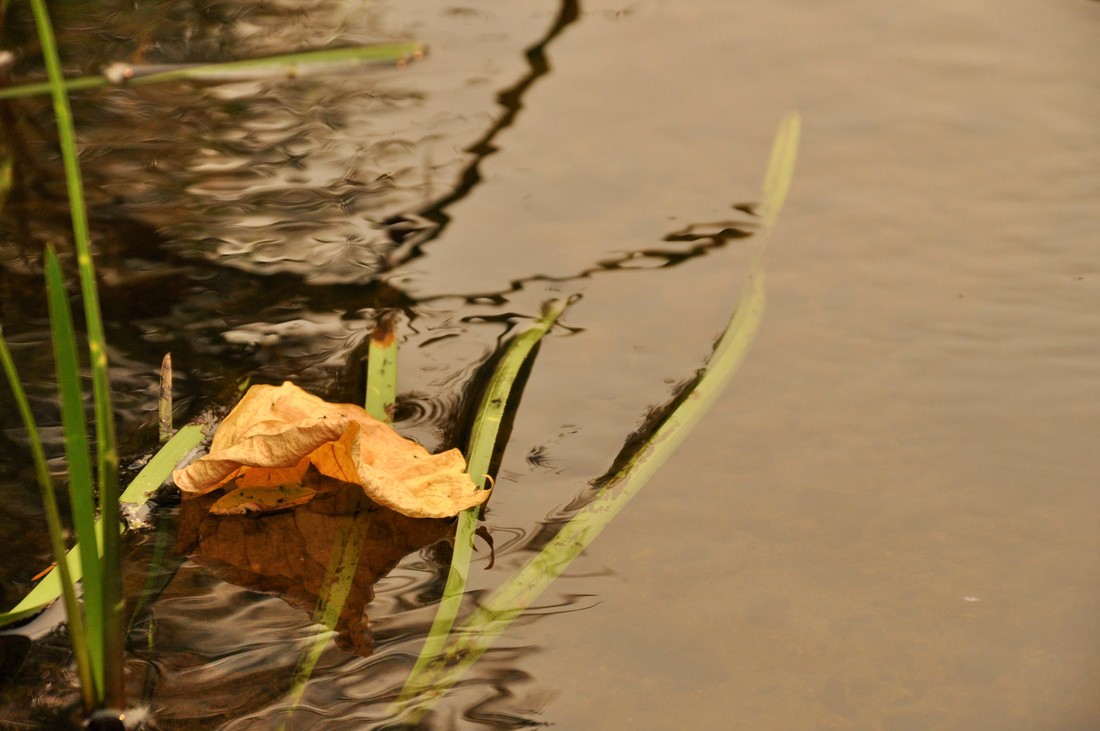
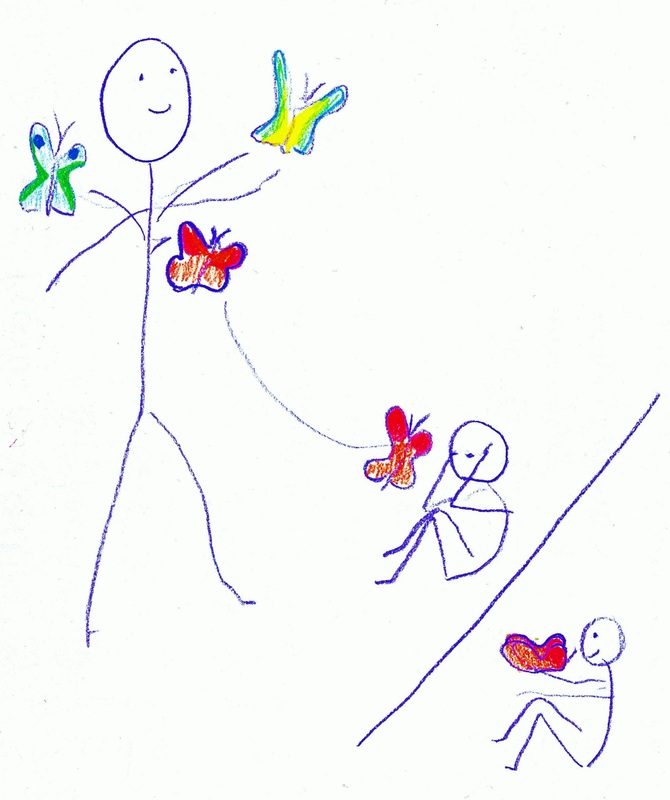
 RSS Feed
RSS Feed
